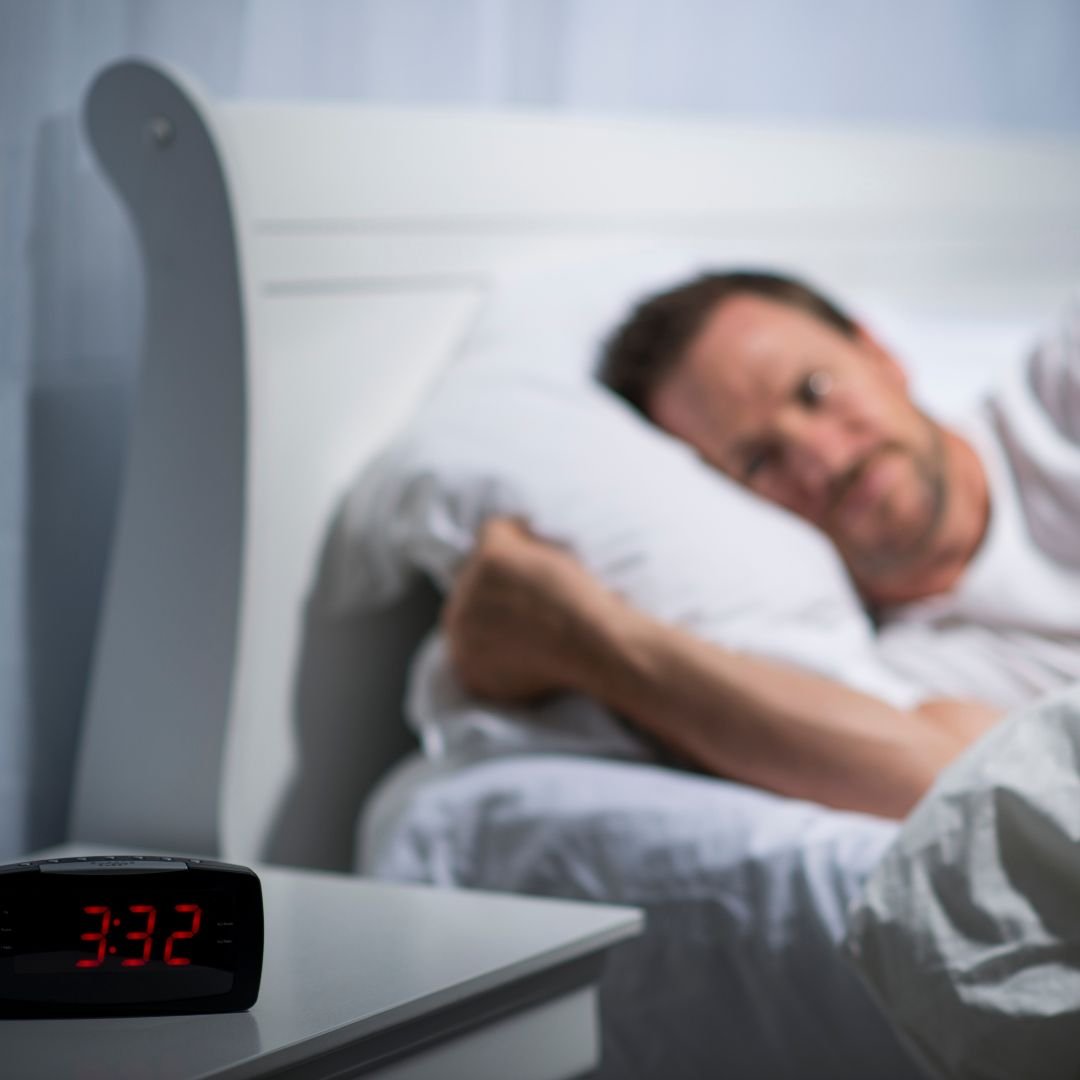Meditation for Insomnia
Having trouble sleeping? Insomnia is a common sleep disorder that can make it difficult to fall asleep, stay asleep, or cause you to wake up too early and not be able to fall back asleep. It can lead to daytime fatigue, irritability, and difficulty concentrating. Let's talk about insomnia and how meditation can help improve your sleep quality. Insomnia is a common sleep disorder where individuals have difficulty falling asleep or staying asleep. Meditation for sleep is a technique that involves calming the mind and body to help promote relaxation and improve sleep quality. By practicing meditation before bed, individuals may find it easier to quiet racing thoughts and enter a state of deep relaxation conducive to falling asleep. Incorporating meditation into your bedtime routine can be a natural and effective way to combat insomnia and promote restful sleep.
What Causes Insomnia?
Insomnia, a common sleep disorder, can be caused by various factors. These may include stress, anxiety, depression, irregular sleep schedules, poor sleep habits, certain medications, medical conditions such as asthma or arthritis, and even environmental factors like noise or light.
Understanding the root cause of insomnia is crucial in finding effective treatment options. By addressing the underlying factors contributing to insomnia, you can work towards improving your sleep quality and overall well-being.
Symptoms of Insomnia
Insomnia is a common sleep disorder that can have a significant impact on your daily life. Symptoms of insomnia include difficulty falling asleep, waking up frequently during the night, waking up too early with difficulty falling back asleep, feeling tired upon waking, daytime fatigue or sleepiness, irritability, difficulty concentrating, and mood disturbances such as angry outbursts. It is important to consult your doctor if you are experiencing persistent symptoms of insomnia to receive a proper diagnosis and treatment.
Causes of Insomnia
Caffeine
Caffeine is a well-known stimulant that can interfere with sleep patterns and contribute to insomnia. Consuming caffeine, especially in the afternoon or evening, can disrupt the body's natural sleep-wake cycle and make it difficult to fall asleep or stay asleep.
It's important for those experiencing insomnia to be mindful of their caffeine intake and consider reducing or eliminating consumption, particularly close to bedtime. By understanding the relationship between caffeine and insomnia, individuals can take steps to improve their sleep quality and overall well-being.
Medications
Insomnia can be a common side effect of certain medications. It is essential to be aware of the potential impact that medications can have on sleep patterns. By understanding how medications may cause insomnia, you can work with your healthcare providers to address this issue effectively.
Do YOU have Insomnia?
Tired of tossing and turning all night? Say goodbye to sleepless nights with our Meditation Training. Discover the natural way to overcome insomnia and experience deep, restful sleep. Book your free 30-minute consultation today and start your journey to a well-rested you!
Poor Sleep habits
Insomnia is a common sleep disorder that affects many people worldwide. Poor sleep habits can significantly contribute to the development and persistence of insomnia. Understanding these habits is crucial in managing and improving sleep quality.
Common poor sleep habits that can cause or worsen insomnia include irregular sleep schedules, excessive screen time before bed, consuming drinks that have caffeine close to bedtime, lack of physical activity, and high levels of stress or anxiety.
By identifying and addressing these poor sleep habits, you can take proactive steps towards better sleep routines and potentially alleviate symptoms of insomnia. It is important to prioritize healthy sleep patterns for overall well-being and quality of life.
Insomnia can be caused by a variety of medical conditions. Some common medical conditions that can contribute to insomnia include:
Mental health disorders such as anxiety, depression, or post-traumatic stress disorder.
Chronic pain conditions like arthritis, fibromyalgia, or migraines.
Neurological disorders such as Parkinson's disease or restless legs syndrome.
Respiratory conditions like asthma or sleep apnea.
Hormonal imbalances, such as thyroid disorders or menopause.
Understanding the underlying medical conditions that may be causing insomnia is crucial in order to effectively manage and treat this sleep disorder. It is recommended to consult with a healthcare professional for proper diagnosis and treatment options tailored to individual needs.
Environmental Factors Contributing to Insomnia
Environmental factors can play a significant role in contributing to insomnia. Factors such as noise pollution, excessive light exposure, uncomfortable room temperature, and poor air quality can disrupt sleep patterns and make it difficult to fall or stay asleep.
Noise pollution from traffic, neighbors, or electronic devices can disturb the quiet environment needed for restful sleep. Excessive light exposure, especially from screens before bedtime, can interfere with the body's natural sleep-wake cycle.
Room temperature that is too hot or too cold can make it uncomfortable to sleep. Poor air quality due to allergens or pollutants in the bedroom can also affect breathing and overall sleep quality.
Considering and addressing these environmental factors can help create a more conducive sleeping environment and potentially alleviate insomnia symptoms.
How Meditation Can Help
Meditation can be a helpful tool in managing insomnia by promoting relaxation and reducing stress levels. By calming the mind and body, meditation can help individuals struggling with insomnia to quiet racing thoughts and induce a sense of peace conducive to sleep.
Research suggests that incorporating meditation into a bedtime routine can improve sleep quality and duration for those experiencing insomnia. The practice of mindfulness meditation, in particular, has been shown to alleviate symptoms of insomnia by fostering a state of deep relaxation and promoting better sleep patterns.
By cultivating mindfulness through meditation, you may develop greater awareness of your thoughts and emotions, allowing you to address underlying stressors or anxieties that contribute to sleep disturbances. This heightened self-awareness can lead to improved sleep practices and ultimately support better overall sleep health for those struggling with insomnia.
How to Practice a Meditation for Insomnia
Meditation can be a helpful practice for managing insomnia and improving sleep quality. By incorporating meditation into your routine, you can calm the mind, relax the body, and create an environment more conducive to falling asleep.
To practice meditation effectively, especially for those dealing with insomnia, it is important to follow a few key steps.
Find a Quiet Space: Choose a peaceful and quiet environment where you can relax without distractions.
Get Comfortable: Sit or lie down in a comfortable position. You can use cushions or blankets to support your body if needed. remember to be comfortable. If you are uncomfortable when you meditate, then that is all you will think about.
Focus on Your Breath: Start by focusing on your breathing. Take deep breaths in and out, paying attention to the sensation of each inhale and exhale. You can follow your breath in through your nose, down into your lungs, then out your lungs and out your mouth.
Clear Your Mind: As thoughts come into your mind, acknowledge them but then let them go. Try to maintain focus on your breath or a calming mantra. Do not get overly concerned about thoughts coming into your mind as you meditate. Know that the more you relax, the more your mind is going to wander. This is perfectly normal and a good sign you are starting to relax.
Practice Regularly: Consistency is key when it comes to meditation. Aim to practice daily, even if it's just for a few minutes at first. Start out with following your breath in and out for just 2-4 minutes and gradually increase your time. You can meditate, you just need to practice.
By following these steps and incorporating meditation into your routine, you may find relief from insomnia and experience improved overall well-being and mental clarity.
Conclusion
Meditation is an all natural way to help your body relax enough to go to sleep, but if the root cause for your insomnia is caused by external fources, such as poor diet, too much light, too much caffeine, or other reasons, you need to remove the causes of your insomnia first, if possible. If you are struggling with things like PTSD, (Post-Traumatic Stress Disorder), anxiety, depression, or other mental health factors, be sure to talk to your doctor and incorporate relaxing meditations into your daily routine. Set up a free 30-minute consultation today and learn how meditation can help you sleep.







